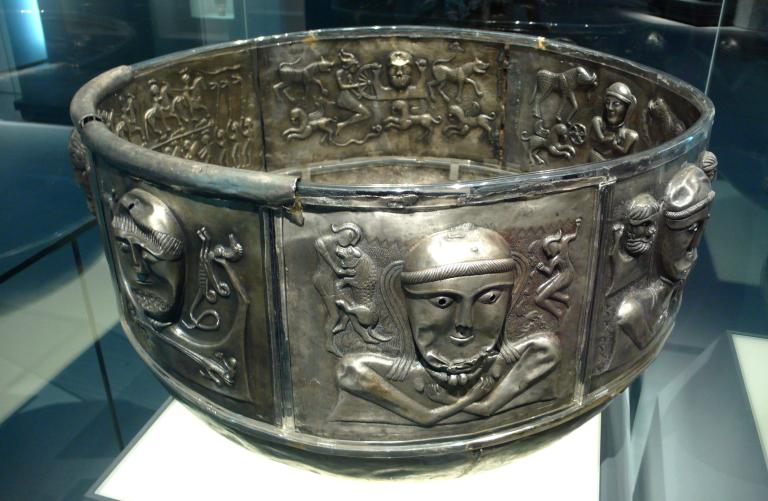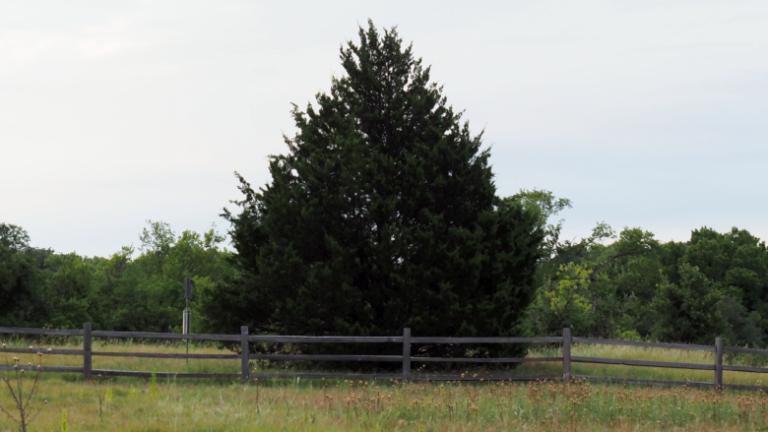The mainstream news site Religion News Service had a piece last week on the new Ásatrú temple in Iceland, titled After 1,000 years, a new temple to the Norse gods rises in Iceland. Here’s a brief excerpt:
Followers of Ásatrú, or Norse Paganism, still honor their gods, and in Iceland, where Ásatrú is the second-most-practiced religion after Christianity, a new temple to the Norse deities is rising now on Öskjuhlíð, a hill overlooking the center of the capital city of Reykjavik. Dedicated to the whole pantheon of Norse gods and nature spirits, it is the first Pagan temple to be built in more than 1,000 years.
The temple is not entirely complete, but it’s far enough along that it’s being used for regular worship and meetings.
Given the misappropriation of Norse religion by racists – especially here in the United States – it’s important to note that the Allsherjargoði of the Ásatrú Fellowship said:
We are open to all, just like it was in the old days … When the original religion was practiced, they didn’t have the modern concept of ‘race.’ Also, ancient people used to allow marriage between clans and cultures, to build alliances and make peace.
The comments on the RNS site are not particularly positive (it’s a comments section – what do you expect?). Several of them challenge the authenticity of the temple, of Ásatrú, and of modern Paganism in general – since we don’t have direct continuity with the ancients, they say we’re making it all up. I left a brief comment on the RNS site, but I want to address this question in more depth.
The first Pagan temple in Iceland in 1000 years is something to celebrate. That we have no direct continuity with the ancients is a challenge, but it doesn’t mean we’re “making it all up.”
A legacy of Christian destruction
It’s ironic that many of the claims that modern Pagans are “making it all up” come from the descendants of the people who destroyed ancient temples, demolished their statues, and burned their writings. Some of the conversion of Europe and the Near East to Christianity (and later, to Islam) was voluntary, but much of it was not. Catherine Nixey’s 2017 book The Darkening Age: The Christian Destruction of the Classical World describes some of the worst destruction and desecration.
Some Christians did preserve some Pagan material. Much of what we know about ancient Norse religion comes from Christians who wrote it down, and for that we are thankful. But by and large, Christianity was – and some of its forms, still is – a conquering religion that demands total victory.
Those who argue “Pagan religions aren’t authentic because they have no continuity with the ancients” usually skip the other part: “you have no continuity because we destroyed it.”
And also, they’re wrong.
We know some things about ancient Pagan religions
I’m a Druid. Of all the modern Pagan religions inspired by ancient beliefs and practices, Druidry has the least to go on. In Blood and Mistletoe: the History of the Druids in Britain (2009), Ronald Hutton said that the primary sources we have on ancient Druidry (if it’s even fair to call Celtic religion “Druidry”) “can be encompassed within a dozen pages of relatively large print.”
But a dozen pages are more than nothing. Beyond the historical sources, we have the stories that survived into the Christian era, where they were written down. We have archaeological finds, things like the Gundestrup Cauldron. And we know more about the religious practices of other groups in the Indo-European tradition – including Hinduism, which has direct and unbroken continuity going back 5000 years or so.
All of these give us a place to start in our efforts to reconstruct and reimagine ancient religions for our time.

Unbroken lineage is helpful (most of the time) but not essential
I’ll be honest: I’m envious of the Catholic Church and their tradition of apostolic succession. I’m envious that they have 2000 years of theology, philosophy, and liturgy to inform and inspire their practices. I wish Pagans had something similar.
But that lineage didn’t stop the medieval Church from becoming so corrupt that Protestants broke from it to create a whole new tradition. And it’s not stopping people in our time from leaving the Protestant denominations and becoming “none of the above.”
However useful unbroken lineage may be, it’s no guarantee that a religion will remain meaningful and helpful.
A good religion is a living religion
Lineage and tradition can be a good thing, but they can also freeze us in the past. We see this in the conservative religions that mistake the cultural norms of ancient times for eternal truth. Perhaps at one point the precarious numbers of the human species were a valid reason to insist that women focus only on childbearing and to de-legitimize same sex attraction and relationships. But even if that was true then (and I’m not saying it was, just that I see the argument) it’s clearly not true now. Yet conservative Christians, Muslims, and some others insist that we must follow the cultural norms of a long-gone era.
Christianity is in decline because it’s no longer speaking to the needs and the experiences of people here and now. While modern Paganism is still very small, it’s growing because it addresses our need to connect to Nature, to our ancestors, and our Gods and Goddesses. It doesn’t insist it has all the answers, because it’s obvious that no one religion has all the answers.
Living religions grow and thrive. Religions stuck in the past require the force of law or social coercion to stay alive… while they can.
Tradition is a protocol – connection is the core
The commenters complaining “you don’t have any of their rituals” miss the point. Rituals – ancient or modern – are only a means to an end. The end – the goal of the rituals – is forming and maintaining a connection with our Gods, our ancestors, the land and the spirits of the land. That connection is the core of the religion.
We start with ancient rituals (or with our best approximation of them) because we know that if they worked for our ancestors, they’ll likely work for us. But our Gods are bigger than any ritual, any temple, any geography. They can meet us any place They choose, and They usually choose to meet us where ever we are. After that, the relationship can strengthen and grow. Sometimes that takes us in the direction of how our ancestors understood and related to Them. Other times, that takes us in a new direction that’s more meaningful and more effective here and now.
Liturgy, rituals, holy days, prayers – these are all sacred elements of a religion. But they are not the core. The core is the relationships we create and maintain.
Temples are good but not necessary
This is a different topic from the question of lineage and authenticity, but I need to discuss it here.
I love temples, whether they’re ancient or modern or even if they’re part of a religion I no longer follow. I’m very happy that the Ásatrú of Iceland have a new temple where they can gather and worship. I hope more temples are built in other places in the near future.
But they aren’t required.
One person can run a coven that meets in someone’s living room. Three people can run a group of 30 that holds public rituals in rented space.
Temples require a long-term commitment from a large number of people. For the most part, we don’t have that now. And that’s OK. We’re still a new religion. Or rather, we’re a collection of religions, often too fragmented to gather under the label of “Pagan.”
Our first priority needs to be developing robust individual practices. Our second priority needs to be developing strong small groups. Hopefully, by the time we’re big enough to need temple-sized facilities, we’ll have the resources to build them – like the Ásatrú of Iceland.
For now, I join in celebrating their new temple.














